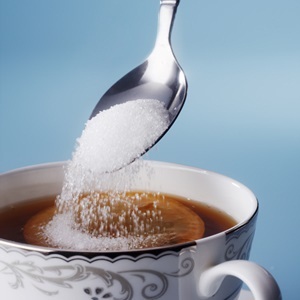
“Sugar can act like poison in high doses – and the amount in our diets has gone beyond toxic,” says neuroendocrinologist Dr Robert Lustig.
Are South Africans addicted to sugar?
According to the SA National Health And Nutrition Examination Survey published last year, the average South African now consumes 17 teaspoons of sugar and similar sweeteners a day – on par with global consumption, which has increased by 46 percent in the past 30 years, per a report.
So it’s come as no surprise that earlier this year, the World Health Organisation (WHO) proposed an update of its guidelines around sugar consumption that would limit sugar to less than five percent of total energy intake – or six teaspoons – per day (half the recommendation in place since 2002).
The consequences of consuming too much sugar
“Sugar consumption is now an epidemic,” says Dr Mark Hyman, author of The Blood Sugar Solution 10-Day Detox Diet. “The long-term effects will be staggering.” And, no, we’re not just talking cavities. When eaten in such vast quantities, sugar can wreak havoc on the body. And over time, that havoc can lead to diabetes and obesity, Alzheimer’s disease and also breast, endometrial and colon cancers.
One recent study found that normal-weight people who loaded up on sugar doubled their risk of dying from heart disease. Other research pinpoints excess sugar as a major cause of non-alcoholic fatty liver disease, which can lead to liver failure. No doubt about it, says Hyman: we’re sweetening ourselves sick, yet screaming for more. Why? Because we’re seriously hooked.
Research shows that hyper-sweet foods may be as addictive as the hardest-to-quit drugs.
Our earliest ancestors likely downed about 20 teaspoons of sugar… per year, says Hyman. The body made its own glucose – an ingredient in sugar and the “energy of life” that powers your every cell – by breaking down healthy fats, proteins and complex carbs, says Lustig.
Your brain on sugar
When people came across something sweet, their brains rejoiced, since sweet meant nutritious berries or fruit, says psychologist Dr Ashley Gearhardt, who specialises in food addiction and overconsumption. The problem is, research suggests that your brain still gets wired by sweets – like, seriously wired. Bingeing on them in the modern form of added sugar can cause a surge of dopamine, the feel-good neurotransmitter, in your brain’s reward centre. Repeated spikes can desensitise that centre, which could release less and less dopamine, leaving you needing more and more sugar to score a rush, says Dr Nicole Avena,
author of Why Diets Fail: Because You’re Addicted To Sugar.
Sugar addiction vs. drug addiction
“These are the same brain patterns you see during drug addiction.” A recent study suggests that sugary biscuits could be as addictive as cocaine or morphine.
When scientists scanned the brains of subjects who’d just eaten a high-sugar treat, everyone’s nucleus accumbens – the part of the brain that switches on when a person shoots heroin or smokes crack – was lit up like fireworks. By contrast, the control group that swallowed low-sugar fare had no nucleus accumbens activity.
That’s not all: Avena’s research shows that, for some, sugar dependence could come with withdrawal symptoms like those of a street-drug addiction. “We see brain changes that lead to lethargy, anxiety and irritability,” she says. “And also changes that produce fierce cravings.”
Not helping matters are your taste buds, which suffer from their own sort of addiction: new research suggests that the more you weigh – and the more sugar you eat, the more you’re likely to weigh – the duller your “sweet” taste buds can become, meaning you may have to shovel in even more sugar to get the same sensory satisfaction. In other words, millions are now strung out on a substance as dangerous as it is ubiquitous, says Hyman. “What saved us as hunters and gatherers – that survival mechanism that rewarded us when we sought sweets – is now killing us.”
How sugar seduces you
Just how vulnerable you are to sugar’s sweet allure depends on an unquantifiable mish-mash of dosage and genetics. “Sugar addiction is like gambling addiction,” explains Anne Alexander, author of The Sugar Smart Diet.
“Some people can walk into a casino, play the slots and walk away. Others start mortgaging their house.” Most people fall somewhere in between, says Hyman. To see where you might lie on the sugar addiction spectrum, try sticking to six or fewer teaspoons of added sugar per day for one week. If you experience strong cravings or those drug-addiction-like withdrawal symptoms – or other ones such as poor concentration,
headaches, or sadness – it’s likely you’re hooked on sweets
Take this test: Are you eating too much sugar
If you feel all right, your brain is probably not misfiring, though that’s no excuse to up your sugar intake. Remember: addictive or not, too much added sugar remains a health hazard.
“Most people are sugar overeaters but don’t know it,” says Dr Nicole Avena. That’s because some “healthy” foods are loaded with hidden added sugar. The proposed WHO guidelines include all added sugar – that is, any sugar that doesn’t occur naturally, e.g. in fruit – and would include the hidden variety, calling manufacturers to account.
Read more:
10 foods with hidden sugar
Too much sugar makes you stupid
Carb and sugar addiction fuelling SA's obesity epidemic
Why the world is getting fatter and fatter
This article appeared in the November 2014 issue of the Women's Health magazine.




 Publications
Publications
 Partners
Partners










